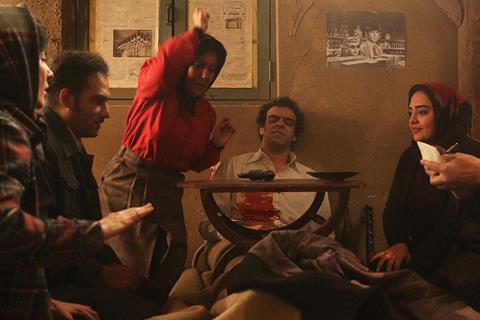
Iranian director, screenwriter and producer Masoud Kimiai has been prevented from travelling to International Film Festival Rotterdam (IFFR) from Iran owing to his support of the protests currently happening in the country.
Kimiai was due to attend IFFR where his title Killing A Traitor is receiving its international premiere in the festival’s Harbour strand.
IFFR festival director Vanja Kaludjercic confirmed the reason for Kimiai’s lack of attendance yesterday (January 31) at a talk held by the International Coalition for Filmmakers At Risk (ICFR). She said: “Masoud Kimiai was stopped at the border when they tried to leave the country.
”[His] passport was taken away, so unfortunately they are not here.”
Kimiai is the latest Iranian filmmaker to be put under a travel ban, in the wake of widespread protests in the country following the death of 22-year-old Kurdish woman Mahsa Amini while in police custody. Reza Dormishian was prevented from leaving the country to attend the International Film Festival of India last year.
Killing A Traitor is a melodrama set on the turbulent streets of 1950s Iran during the nationalisation of oil by prime minister Mohammad Mossadegh.
Kimiai has received acclaim for work including 1969 title Qeysar and 1978 feature The Journey Of The Stone. He was awarded a prize at Berlinale for Snake Fang in 1990.

A silent gathering will take place at the festival on February 2 in solidarity with the people being silenced in Iran.
The ICFR launched in 2020 as a joint venture between the European Film Academy, the International Documentary Festival Amsterdam and the IFFR, aimed at supporting filmmakers facing political persecution for their work.
“Initially the organisation was established to focus on individual cases of filmmakers who were being persecuted for their work, who were being detained or being tortured. But over the past couple of years, the way in which we function as an organisation has had to shift quite quickly,” said Sara Ishaq, ICFR coordinator.
“At the beginning of ICFR in 2020, the cases were individual filmmakers in Iran, Turkey, Egypt, Myanmar, and then by the second year, we’re already faced with the takeover of the Taliban in Afghanistan, and from there we had to shift gear and start actually more practical work on logistical support for filmmakers.”
The organisation again had to pivot following the Russian invasion of Ukraine, launching an emergency fund last year for Ukrainian filmmakers. The fund had to close after being inundated with applications, however, the ICFR has been able to fundraise enough money to reopen the fund for the duration of the IFFR.
The Emergency Filmmaker Fund will close on February 5. Applications can be made from the ICFR website, with small grants of €500, €1,000 or €1,500 to be able to assist in covering temporary relocation expenses, legal and administrative fees such as visas and to cover initial minor but necessary expenses required during the current situation. It is not a film fund to support projects, filmmaking activities or equipment.























No comments yet